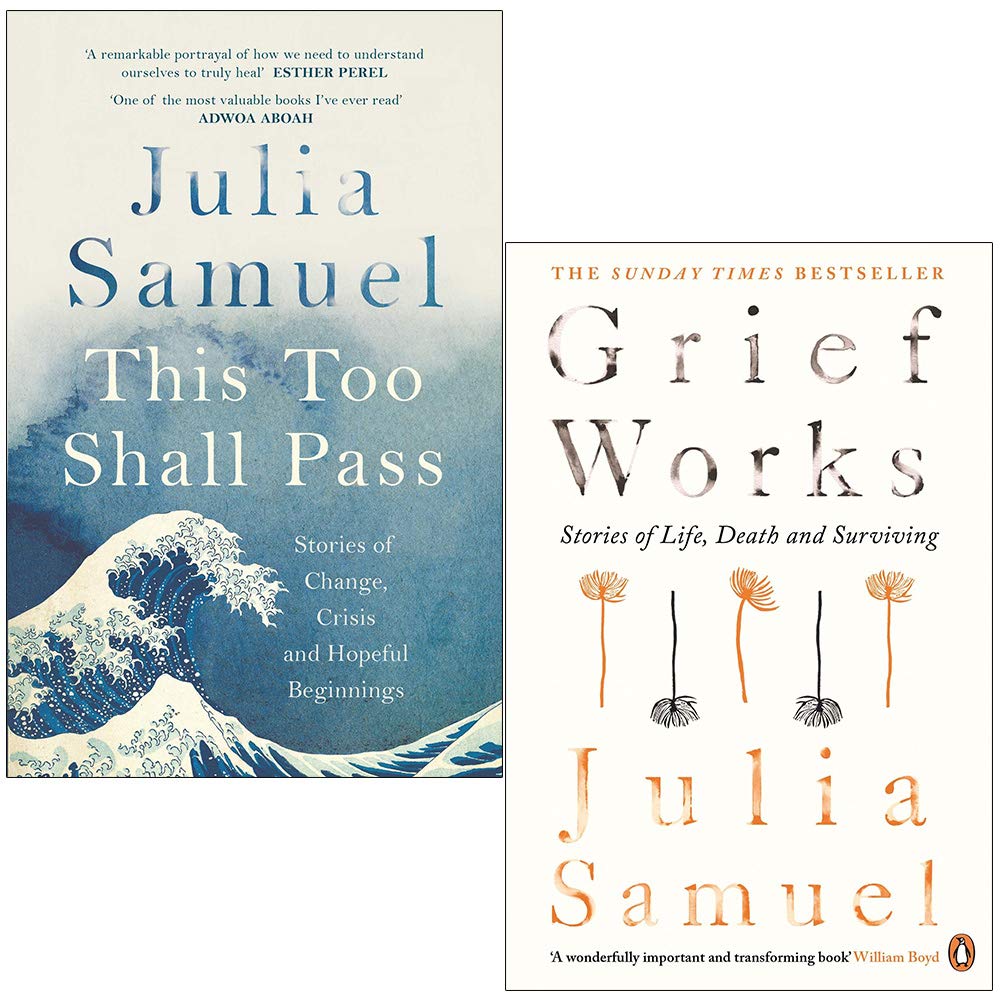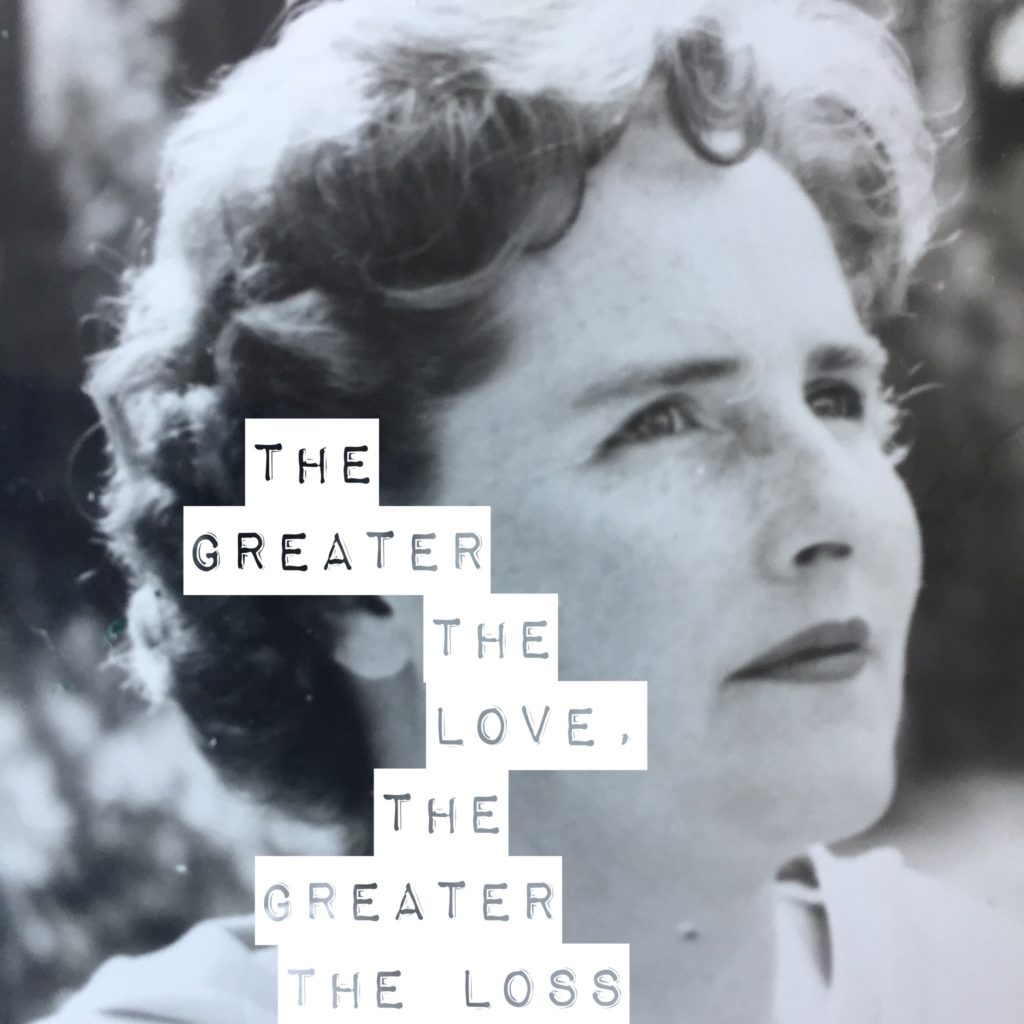“I’ve been crying my way through This Is Us,” said my niece. “Hands down one of the best series ever made. Deep therapy. Love and loss.”
I hadn’t heard of this series before, but as I have access to Amazon Prime at the moment, I checked it out and started watching the first season (there are five).
It weaves together the stories of four generations of the Pearson family, revolving around Jack and Rebecca, who are expecting triplets. I won’t say any more in case you want to watch it, but it’s beautifully crafted, painting rich portraits of each character and their journeys through love and loss.
OK, I will give away one spoiler, which is that we learn halfway through the first season that Jack dies. So, while we are watching him get married and having kids, enjoying all those joyful family moments, we know he won’t be around for long, and we experience a kind of anticipatory grief.
It makes you reflect on the reality of life, which is that we all experience these fleeting moments of everyday joy; but the truth is that, in the end, we will lose everyone we love. Either they go, or we go. There’s a bittersweetness to this realisation, which This Is Us captures so well.
I’ve written a lot here about my relationship with grief – especially after my mum died last year.
Writing about grief has been incredibly therapeutic for me, particularly in lockdown. And I love it when I find another piece of the grief puzzle.
This too shall pass…
I recently listened to an episode of Griefcast, a podcast hosted by the comedian and writer Cariad Lloyd. She interviewed the counsellor, psychotherapist and author Julia Samuel, who has written the books Grief Works and This Too Shall Pass.
Julia introduced the concept of “living loss” – which means grief without death. This was a new one to me, and I thought I knew quite a lot about the different types of grief.
This helped me to make sense of how I felt after my dad had a stroke when I was 16. He survived, but we experienced a living loss of who he was before the stroke.
“A living loss is soul-wounding and not often shared with others. Resolution is difficult and deep sorrow often remains untouched.”
A Living Loss: Surviving Separation from a Loved One, by Barbara Rombough
We can also experience living loss about many different things: separations and estrangements of any kind, loss of a marriage, relationship, job or career, loss of friends or extended family after a divorce, loss due to the pandemic, our way of life, our health, our hopes and dreams…
Anyone whose loved one suffers from dementia or Alzheimer’s suffers a living loss every day – what Julia calls a “pre-bereavement”. I certainly felt that about my mum for at least two years before she died.
But it occurred to me that there is yet another type of living loss, which I experienced during the Trump years – loss of civility, decency, honesty and integrity in public life.
Returning to This Is Us, there’s a character called Kate who struggles with obesity and is constantly trying to lose weight. Her journey (so far) is very much about the living loss she experiences of the person (thinner, more popular) she thought she should have been – or perhaps other people thought she should have been, despite being beautiful and loved by her friends and family.
So how do we deal with a living loss? Julia Samuel would say the first step is to acknowledge it as a type of grief, and give ourselves permission to feel the sadness, the fear, the anger, the numbness, the fatigue – all of it – and to take good care of ourselves, as we would care for a friend in the same situation.
I’m betting that most of us have experienced a living loss in the past year. And with no end in sight to the pandemic, we will continue to live with loss for some time to come.
Grief is not going away: better to accept it and know that it doesn’t need to be all-encompassing; it can co-exist with feelings of everyday joy, just like the Pearsons experience in This Is Us.



Reading this post has brought back memories of loss and grief. As you have, Bev, I lost my Mum to dementia and, like you, I grieved the loss of my Mum, my friend long before she actually died.
But the deepest grief was, surprisingly, the death of my marriage even though I was the one who initiated the separation. Leaving my marriage didn’t bring me the hope of freedom and a new life that I’d expected. Instead I grieved the loss of illusion, the loss of the hopes and dreams of a young woman who wanted more than anything to be loved.
I know you’re focusing on the past year and lockdown so I can’t explain why this particularly memory came up.
Thanks so much for sharing Sue – I really appreciate your honesty and vulnerability. You have identified many forms of loss that are less accepted and understood – certainly one of my biggest losses was the death of my marriage. Reflecting on the losses during lockdown will tend to bring up past grief as well.